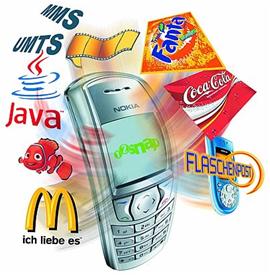 The Arab Spring in 2011 prompted many to take notice of the digitally connected youth who spearheaded—and sustained—the political movements in the Middle East and North African countries. These countries have relatively low overall internet penetration. However, the young culture, as well as the experience and coordination of 2011’s events, are bringing many more online, reports eMarketer.
The Arab Spring in 2011 prompted many to take notice of the digitally connected youth who spearheaded—and sustained—the political movements in the Middle East and North African countries. These countries have relatively low overall internet penetration. However, the young culture, as well as the experience and coordination of 2011’s events, are bringing many more online, reports eMarketer.
Google and Booz & Co. surveyed internet users between the ages of 15 and 35 (an age range believed to make up 40% of the population) in Saudia Arabia, UAE, Egypt, Bahrain, Kuwait, Qatar, Jordan, Algeria and Lebanon. The results showed a digitally engaged population with room to bring technology further into their lives and society.
Overall, 83% of these internet users reported using the internet daily. And when users went online, they stuck around, with 99% of daily users spending over 30 minutes online, well above the 82% who spent over 30 minutes watching TV. More than four in 10 users spent at least five hours per day on the internet.
Home was the primary access point for respondents, with North Africa posting the highest percentage of people accessing from a home base (83%). By comparison, in the richer Gulf countries, seven out of 10 accessed from home, while nearly as many accessed on the go. The more expensive and newer smartphone devices are making big strides in the oil-rich region. Most in the Middle East and North Africa already own standard mobile phones.
Internet cafes remain relevant in North Africa primarily, used for access by just under two out of 10 respondents. This is a common trend in the developing world, where people first go online at these locations before access is supplanted by home computers and mobile devices. In Lebanon and Jordan, the Levant countries, public spaces saw the greatest web use of all regions, suggesting that Wi-Fi hotspots have caught on here.
Tablets have also made major advances among internet users in the Gulf especially; penetration of these devices among the connected youth (36%) was more than half of smartphone ownership (61%).
As elsewhere, watching short videos online is one of the most popular daily activites among internet users in each country, according to the survey. About four in 10 users throughout the Middle East and North Africa also reported paying to download media at least once a week.
And social networking was, of course, quite popular among the young respondents, with 61% spending more than two hours per day on social sites.
In the developing region, where the internet is often associated with a more open culture, there are still many areas where a technology upgrade is seen as potentially beneficial. Nearly half of respondents believed healthcare was in need of technology improvement, and over four out of 10 cited education.
Internet access in the Middle East and Africa will continue expanding at the fastest pace worldwide, according to eMarketer estimates. In these countries, the energy and engagement of the younger generations will drive technological change throughout the region.
Source:eMarketer
Comments are closed.